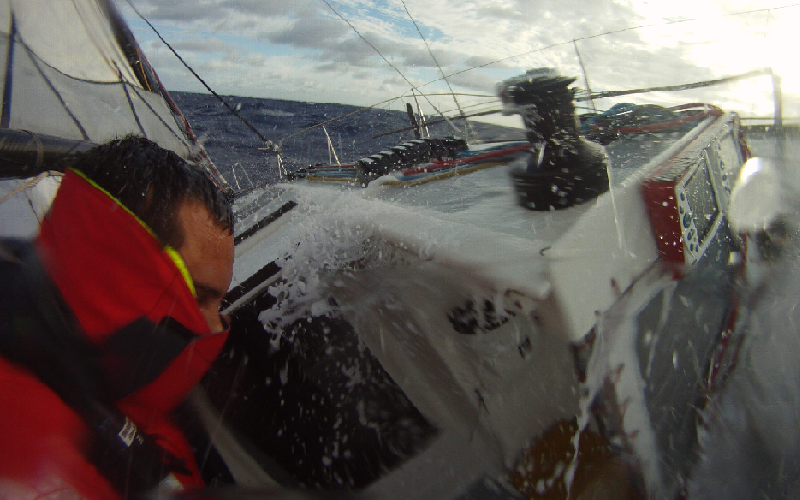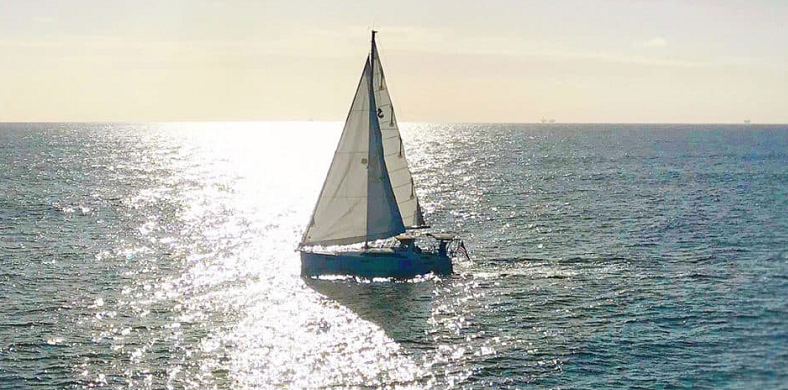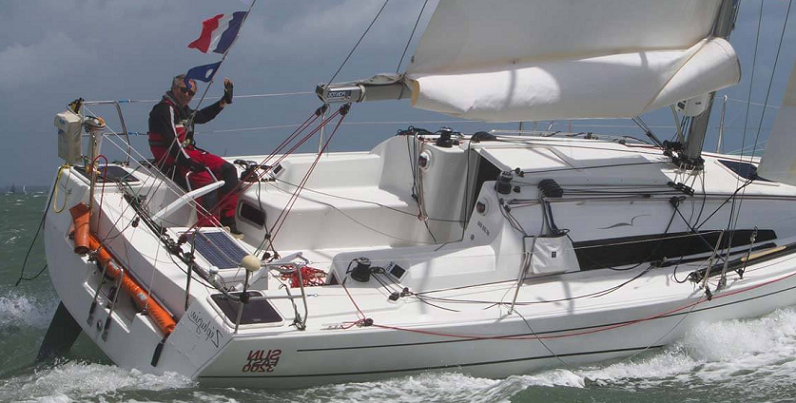
Embarking on a solo sailing journey is not just a test of physical endurance, but a profound challenge for the mind as well. The allure of the open seas, the solitude of the vast ocean, and the thrill of self-reliance are juxtaposed against the formidable demands placed on one’s cognitive health. Solo sailing, by its very nature, imposes unique challenges: isolation, continuous navigation decisions, and the need to maintain alertness in an ever-changing environment. These elements can have profound impacts on the sailor’s cognitive functions. But what exactly happens to the brain during extended periods at sea? How does prolonged solitude and the relentless demand for vigilance affect neurological well-being?
Contents
Understanding Cognitive Decline
Before we get into how long-duration solo sailing impacts cognitive health, it’s crucial to understand what cognitive decline entails. This section will cover the basics of cognitive decline, its symptoms, causes, and how it affects daily life.
Definition and Symptoms of Cognitive Decline
Cognitive decline refers to the gradual deterioration of cognitive functions such as memory, attention, and decision-making skills. It’s a process often associated with aging but can be accelerated or exacerbated by various factors, including environmental stressors and lifestyle choices. Common symptoms include forgetfulness, difficulty in concentrating, challenges in learning new tasks, and sometimes confusion in familiar environments. Recognizing these symptoms early is key to understanding and mitigating their effects.
Causes and Risk Factors of Cognitive Decline
The causes of cognitive decline are multifaceted. Age is the most common factor, but genetic predisposition, lifestyle choices, and environmental factors play significant roles. Stress, lack of sleep, poor diet, and minimal physical activity can contribute to cognitive deterioration. Moreover, psychological factors like prolonged isolation and chronic stress, often encountered in long-duration solo sailing, can also accelerate cognitive decline. Understanding these risk factors is essential in exploring how solo sailing specifically influences cognitive health.
Cognitive Decline Impact on Daily Life
Cognitive decline can significantly impact daily life, affecting a person’s ability to perform routine tasks, engage in social interactions, and maintain independence. It can lead to decreased work performance, challenges in maintaining relationships, and, in severe cases, complete dependence on caregivers. For solo sailors, the effects might manifest in the form of impaired decision-making and navigational skills, both crucial for their safety at sea. This section underlines the importance of maintaining cognitive health and the potential consequences of neglecting it [1].

The Unique Challenges of Solo Sailing
Solo sailing, especially for extended durations, presents a set of challenges that are as unique as they are demanding. These challenges can significantly influence a sailor’s cognitive health. Understanding these unique conditions is crucial in assessing their impact on neurological well-being.
Physical Demands of Long-Duration Sailing
The physical demands of solo sailing are immense. Sailors must constantly engage in rigorous activities, from maneuvering the boat to adjusting sails, often under harsh weather conditions. These activities require not only physical strength and endurance but also demand constant mental alertness. The need to remain vigilant over long periods, coupled with limited rest, can lead to physical exhaustion, which in turn affects cognitive functions.
Psychological Stressors
Solo sailing involves more than just physical challenges; it is a test of mental resilience. Sailors face psychological stressors such as loneliness, the pressure of decision-making, and the constant anxiety of potential dangers. These stressors can lead to mental fatigue, impacting cognitive processes like decision-making, problem-solving, and emotional regulation. The psychological impact of being alone in a vast and often unforgiving environment cannot be understated [2].
Isolation and Its Effects
Perhaps the most significant challenge of solo sailing is isolation. Being alone for weeks or months creates a unique set of psychological and cognitive challenges. Human beings are inherently social creatures, and prolonged isolation can lead to feelings of loneliness, depression, and anxiety. These emotional states can negatively impact cognitive functions, particularly memory, attention, and executive functioning. The impact of isolation on cognitive health is a critical aspect of solo sailing that warrants close examination.
Neurological Impacts of Solo Sailing
The unique challenges of solo sailing not only test the limits of physical and mental endurance but also have significant implications for neurological health.
Cognitive Functions Affected by Solo Sailing
Solo sailing can influence several key cognitive functions. Firstly, the need for continuous navigation and vigilance can enhance spatial awareness and decision-making skills in the short term. However, over time, the constant mental strain can lead to cognitive fatigue, impacting memory, attention, and problem-solving abilities. Secondly, the lack of social interaction can affect emotional intelligence and social cognition, skills vital for understanding and interpreting social interactions [3].
Short-Term vs. Long-Term Effects of Solo Sailing
The short-term neurological effects of solo sailing can be both positive and negative. Sailors often report heightened alertness, improved problem-solving skills, and a sense of mental clarity during and shortly after their voyages. However, these benefits can be accompanied by short-term memory lapses and decreased concentration due to fatigue. In the long term, the effects can be more concerning. Prolonged exposure to stress, isolation, and sleep deprivation may lead to more permanent cognitive decline, affecting memory, executive function, and even leading to mood disorders.
Comparative Studies and Research Findings Involving Solo Sailing
Research on the neurological impacts of solo sailing is still evolving. Comparative studies between solo sailors and non-sailors have shown varied results. Some studies suggest that solo sailors develop better stress management skills and cognitive resilience. Others indicate a higher risk of cognitive impairment due to the extreme conditions faced at sea. Additionally, the research highlights the importance of mental preparation and recovery time for sailors to mitigate these risks.

Coping Mechanisms and Strategies for Solo Sailing
Given the significant neurological impacts of long-duration solo sailing, it’s crucial for sailors to have effective coping mechanisms and strategies in place. These measures can help mitigate the cognitive challenges and enhance overall mental well-being during and after their voyages.
Mental Exercises for Sailors
Mental exercises are essential for maintaining cognitive health. Sailors can engage in activities like puzzles, memory games, or even learning new skills like a language or instrument during their journey. These exercises not only provide a mental diversion from the monotony of the sea but also help in keeping the brain active and engaged. Regular practice of mindfulness and meditation can also be beneficial, aiding in stress reduction and improving concentration [4].
Importance of Social Interaction
While solo sailing inherently involves isolation, maintaining some level of social interaction is vital. Sailors can stay connected with the world through satellite communications, social media, or even keeping a regular log or blog. Interacting with others, even remotely, can provide emotional support and reduce feelings of loneliness. Additionally, planning for social activities post-voyage can give sailors something to look forward to, aiding in their psychological well-being.
Techniques for Stress Management
Effective stress management is crucial for long-duration solo sailors. Techniques such as deep breathing exercises, progressive muscle relaxation, and visualization can be powerful tools in managing stress levels. Additionally, maintaining a routine on the boat, including regular sleep schedules, exercise, and balanced meals, can help in keeping stress at bay. Post-voyage, seeking professional psychological support or joining support groups can be beneficial in dealing with any lingering stress or emotional issues.
Case Studies Involving Solo Sailing
To better understand the neurological effects of long-duration solo sailing, it’s insightful to examine real-life case studies. These accounts provide a tangible context to the theoretical aspects discussed earlier, offering a glimpse into the experiences and challenges faced by solo sailors.
Experiences of Solo Sailors
Numerous solo sailors have shared their experiences, highlighting both the triumphs and trials of their journeys. For instance, some sailors report enhanced problem-solving skills and increased mental resilience as a result of their voyages. On the other hand, others have spoken about the difficulties they faced, such as memory lapses, difficulty in concentration, and feelings of disorientation post-voyage. These personal accounts are crucial in understanding the diverse range of cognitive impacts that solo sailing can have [5].
Interviews with Neurologists and Psychologists
Interviews with neurologists and psychologists provide a professional perspective on the cognitive implications of solo sailing. Experts in cognitive health have noted that the extreme conditions of solo sailing can lead to significant stress on the brain, affecting cognitive functions. They emphasize the importance of preparation and post-voyage care to mitigate potential negative effects. These professional insights help in framing the neurological impacts within a scientific context.
Analysis of Long-Term Cognitive Effects of Solo Sailing
Long-term studies on solo sailors offer valuable data on the lasting effects of such voyages on cognitive health. Some studies indicate that prolonged exposure to the stressors of solo sailing can lead to lasting changes in brain function, particularly in areas related to memory and decision-making. However, these effects can vary greatly depending on individual factors such as the sailor’s mental preparation, coping strategies during the voyage, and post-voyage rehabilitation.
References
[1] How do emotions and continuous cognitive effort play a role in solo offshore sailing?
[2] Field study of sleep and functional impairments in solo sailing races
[3] Oxidative stress and motion sickness in one crew during competitive offshore sailing
[4] Sailing Hallucinations
[5] Sailing Across the Atlantic: An Exploration of the Psychological Experience

